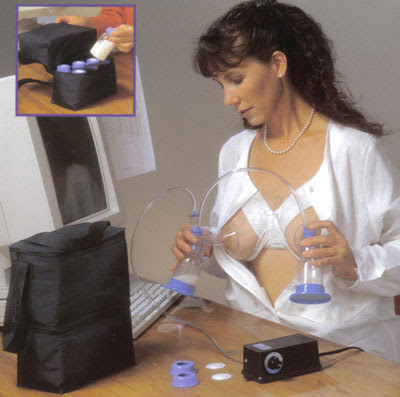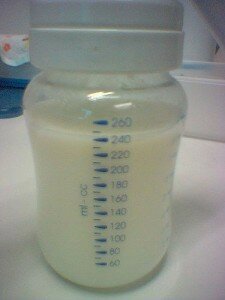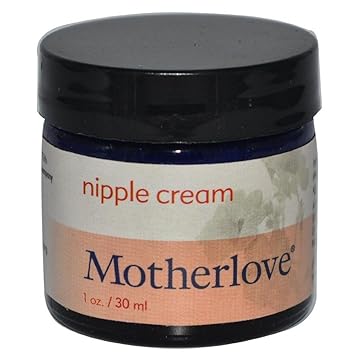by April Opoka, Guest Blogger
 After
being away from AL for almost 15 years, I recently returned and, come to find
out, I am the area’s first Full Circle Placenta Encapsulation Specialist, and
soon to be the first Full Circle Placenta Encapsulation Educator/Trainer (coming
2015)!
After
being away from AL for almost 15 years, I recently returned and, come to find
out, I am the area’s first Full Circle Placenta Encapsulation Specialist, and
soon to be the first Full Circle Placenta Encapsulation Educator/Trainer (coming
2015)!
I am excited to offer these services to the mamas of
Huntsville and surrounding areas for many reasons, but the whole reason I ever
got involved with placenta encapsulation to begin with is that I suffered
severe perinatal mood disorders starting at just 8 weeks gestation with my
first child and lasting until well after I gave birth. If I had known then
about placentophagy (ingesting your own placenta), I would have literally eaten
my placenta right where I gave birth, not unlike other mammals. Yes, it was
THAT bad!
What are the Benefits?
Benefits of Placentophagy
include increasing milk supply, preventing or lessening the risk of "baby
blues" or PPD, preventing post-birth anemia and minimizing blood loss,
stabilizing hormones, replenishing B-vitamins, protecting from infection and
bleeding due to retained placental tissue or membranes in the uterus, and
natural pain relief from the labor and birth of baby. In addition, men can
benefit from taking placenta pills as well, as the hormones contained within
may help in bonding with the new baby. This would be particularly helpful in
cases where the mother is unable to care for the new baby.
What Hormones are in the Placenta?
Hormones retained in
the placenta include the following:
Oxytocin - referred to as the
"love hormone," this helps with bonding, pain relief, and happiness
Cortisone -
combats stress
Interferon
- stimulates the immune system
Prostaglandins
- anti-inflammatory
Hemoglobin
- stimulates iron production in the blood
Urokinase Inhibiting Factor and Factor XIII
- lessens bleeding and promotes healing
Prolactin
- stimulates milk production and healthy mammary function
POEF (Placental
Opioid Enhancing Factor) - enhances opioid-analgesia so that there should be
less need for pain medications post birth
What Questions Do I Need Answered?
Here are the answers to those questions you might not have even thought to ask...but need to!
 ·
So, what qualifies me to take your placenta
and turn it into something palatable that could very well help you with
symptoms of postpartum depression, anxiety, fatigue, boosting milk supply, etc.?
·
So, what qualifies me to take your placenta
and turn it into something palatable that could very well help you with
symptoms of postpartum depression, anxiety, fatigue, boosting milk supply, etc.?
Well, that’s a loaded question. Do I just tell you about
my training with Full Circle, the Bloodborne Pathogens for Doulas and Placenta
Encapsulators certification, and the Alabama Food Handlers certification? Or do
I back up, before I entered the land of unicorns (what I call mamas like me,
and likely you, if you’re reading this) and tell you that I also have a
professional degree in science/medicine and have had ongoing education,
training and actual work experience in medical diagnostics, sterile technique,
stem cell banking from umbilical cord blood, transfusion medicine, clinical
trials management, and academic and pharmaceutical research, with previous
employers including The University of North Carolina at Chapel Hill Hospital,
Duke University Medical Center, and numerous pharmaceutical and biotechnology
companies? You see, it’s all relevant. I firmly believe you’ll be hard pressed
to find someone who adheres so closely to proper sanitation methods and pays
such close attention to potential risks and issues such as cross contamination
and infection. Yes, letting anyone encapsulate your placenta and return it to
you for your consumption has risks, and a certain level of trust is placed in
the person you choose for this important task. I believe I am able to not
only earn your trust, but ease your mind that I will handle this task with the
utmost care and attention to detail.
·
What are the laws in Alabama regarding
placenta encapsulation?
Well, there actually are none. I can see the good and the
bad in this. The good part is that there’s nothing saying you cannot possess
your placenta and do with it what you wish, thus, there should be no good reason
that any hospital should refuse you this right. However, there are hospitals
that refuse you this right, and there is no law on paper saying they have to
give it to you.
·
The number one question I’m asked is “What is
the process?” So, basically, you want me to encapsulate your placenta. Now
what?
It’s pretty simple on your part, but you really, REALLY
should prepare the few things you need to prepare well in advance of your
estimated due date in order to make things easier on you and me both, when the
time comes. After all, who wants to worry with details while in labor, pushing,
having just given birth, or on their babymoon? No one! The following is a run-down
of the process:
- Talk to/inform your care provider of your wishes to take your placenta with you.
- Request
a copy of your initial labwork, or prenatal panel test results from your care
provider which show your lab results for Hepatitis, HIV, and Syphilis. This is
a standard battery of tests that is run without most people even realizing it.
Trust me, if you’re seeing an OB and you haven’t purposely opted out of this
testing, it has been done. I will need to see a copy of these results before I
will process your placenta on my equipment. Period. This is actually not for my
protection, but for YOUR protection. This is one part of my process that gives
mamas a bit more peace of mind. Nobody who has positive test results will have
a placenta processed on my equipment!
- Complete
the prenatal questionnaire and contract included in your welcome packet that will
be emailed to you upon requesting my services. You may include your test
results with this completed paperwork and your first payment and then mail it
to me.
- READ
the welcome packet. It details things like handling and storage of the placenta
after birth, whether vaginal or C-section (they are different), and what NOT to
do. If you call to say you’ve given birth to your wonderful little bundle of
joy, and you’re ready for me to pick up the placenta, but it’s in pathology and
you have no idea if it has come in contact with cleaners, preservatives, or
even worse, if it has been “switched at birth” with the other unicorn’s
placenta down the hall who may or may not have an encapsulation specialist that
is dutiful about requiring STD results, that’s a problem. This shouldn’t just
worry me, but it should really worry you. Please don’t let the placenta out of
your or your designated person’s sight. Keep it in a hard-sided cooler, on ice,
in your room until you can put it in your own refrigerator. Freezing is not ideal
and I don’t recommend this unless processing will be delayed, for whatever
reason, beyond 3 days post birth.
- Gather
what you need to carry with you to the birthing place: 2 Ziploc bags, one
labeled with your name and phone number, and a hard-sided cooler, along with
anything you haven’t already given to me (paperwork and/or final payment) in an
envelope.
- Give
me a courtesy call when you’re in early or active labor so I can plan. Then, CALL
me so I can come get the placenta and get straight to work. I pick up placentas
from sun up to sun down. If you should happen to give birth in the middle of
the night, please call first thing the next morning.
- If
you gave birth in a hospital, I will meet your designated person outside the
entrance of the birth center and transfer the placenta to my cooler unless we
make other arrangements ahead of time.
- If
you had a doula and she and I have a placenta agreement in place, you may let
her take the placenta and I will get it from her.
- I
will process your placenta, usually in less than 48 hours, depending on
blood/fluid content, weight, thickness, etc., and return your placenta
preparation(s) to you, at your home or at the hospital, promptly.
- All preparations come with instructions and
indications for use, as well as an open invitation to call me anytime you have
questions or concerns, even if you’re a year or more postpartum.
·
What placenta services are available?
Basically anything you want! I can do Raw preparation,
Traditional Chinese Method inspired preparation (with or without herbs), ½ Raw
and ½ TCM(i), Tinctures, Salves, Smoothies, Prints, Cord Keepsakes, etc.
·
How much does it cost and how do I contact
you?
For current prices and descriptions of services offered,
please see the Placenta Services portion of my website at www.branchingoutadvocates.com.
You may also contact me through the contact form on the website, or for
immediate assistance, you may call me at 256-333-0504.
I’m truly passionate about serving mamas through their
birthing years and I welcome the opportunity to speak with you about any of the
services I offer. Please give me a call, email, or check out my website for
more information. New things are coming in 2015, like the area’s first offering
of hands on placenta encapsulation training, and Birth Reclamation Ceremonies.






